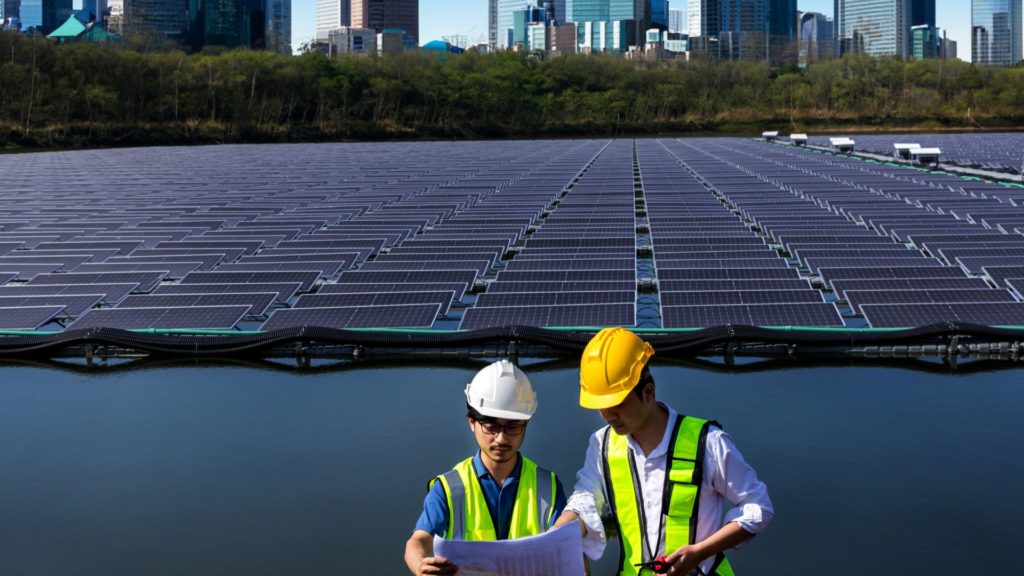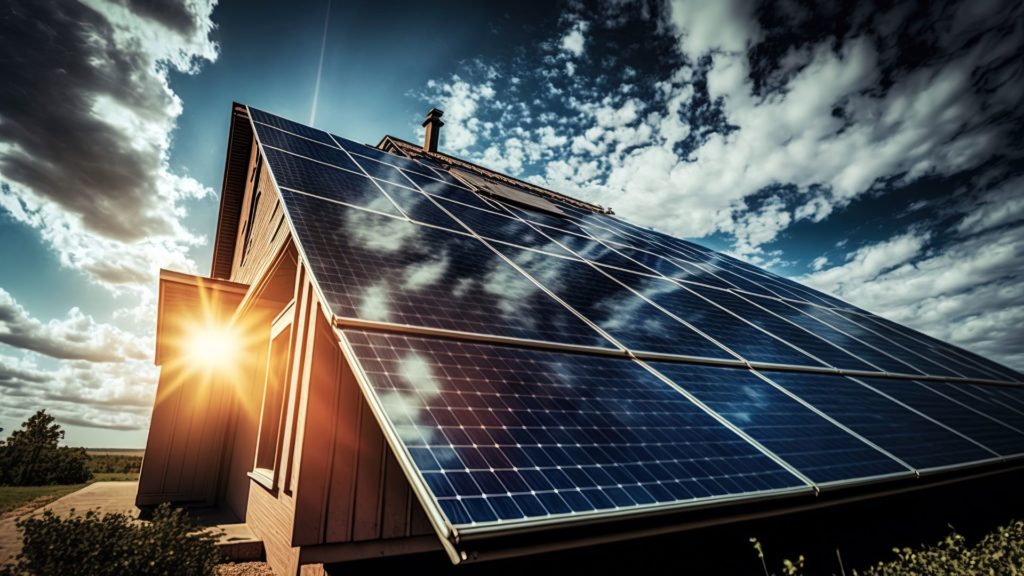As the world leans more towards sustainable living, solar power has emerged as a leading source of renewable energy. Understanding the nuances between off-grid and grid-tied solar power systems is crucial for homeowners and businesses considering a switch to solar. This guide aims to shed light on these configurations, detailing their benefits, limitations, and ideal use scenarios to help you make an informed decision tailored to your energy needs and goals.
Solar power systems convert sunlight into electricity, offering a green alternative to conventional energy sources. At the heart of these systems are solar panels, which capture solar energy and convert it into electrical power. The choice between off-grid and grid-tied solar power systems fundamentally affects how this energy is stored and used, influencing everything from installation costs to day-to-day functionality.
Understanding Solar Power Systems

Solar power systems operate on simple yet profound principles, harnessing the sun’s energy to provide electricity. The process involves photovoltaic cells within solar panels converting sunlight into direct current (DC) electricity, which is then transformed into alternating current (AC) electricity through an inverter, powering homes and businesses. This renewable energy source is pivotal in today’s energy landscape, offering a path towards reducing carbon footprints and promoting environmental sustainability.
The importance of solar power in the current energy scenario cannot be overstated. With growing concerns over climate change and the depletion of fossil fuels, solar energy presents a viable and sustainable alternative. By understanding the basic workings of solar power systems, consumers can better appreciate the value and impact of their investment in solar technology.
Grid-Tied Solar Power Systems
Grid-tied solar power systems are connected to the public electricity grid. They allow homeowners to use solar power during the day and draw from the grid when solar production is insufficient. One of the main benefits of grid-tied systems is net metering, where excess electricity generated is sent back to the grid, often resulting in credit from the utility company. This system significantly lowers electricity bills and reduces initial installation costs since it typically does not require battery storage.
However, grid-tied systems do have limitations. They depend on the grid to function, so during power outages, these systems go down to prevent back-feeding and protect utility workers. This dependence can be a drawback for those seeking energy independence or living in areas with frequent power outages. Grid-tied solar power systems are ideal for individuals in urban or suburban areas with stable grid infrastructure who want to reduce their energy bills and environmental impact.
Off-Grid Solar Power Systems
Off-grid solar power systems operate independently from the utility grid, making them perfect for remote locations without reliable grid access. These systems require a battery bank to store electricity for use during the night or on cloudy days, ensuring a constant power supply. The independence from the grid eliminates electricity bills and provides a self-sustaining power solution, a significant advantage for those in isolated areas or seeking complete energy autonomy.
The primary limitation of off-grid systems is their higher initial cost, largely due to the need for batteries and a more complex installation. Maintaining and replacing batteries can also add to the long-term expenses. However, for individuals living in remote areas or those prioritizing energy independence and resilience, off-grid solar power systems offer unmatched benefits, making them a worthwhile investment despite the higher upfront costs.
Hybrid Solar Power Systems
Hybrid solar power systems combine elements of both off-grid and grid-tied solutions, offering flexibility and efficiency. These systems can store excess solar power in batteries for later use and still connect to the grid for backup or additional power needs. The ability to store energy and use the grid as a backup provides a best-of-both-worlds solution, ensuring reliability and reducing dependence on the grid.
The benefits of hybrid systems include greater energy independence without forgoing the safety net the grid provides. This setup is ideal for those who experience frequent power outages or have fluctuating energy needs. While the initial cost can be higher due to the addition of batteries, the long-term savings and convenience can make hybrid systems an attractive option for many homeowners and businesses.
Cost Comparison
When comparing the costs of off-grid and grid-tied solar power systems, several factors come into play. Grid-tied systems often have a lower initial investment, primarily because they don’t require batteries for energy storage. However, off-grid systems, while more expensive upfront due to battery costs, can lead to greater savings in the long run by eliminating reliance on utility companies and electricity bills entirely.
The financial benefits of each system vary based on individual energy needs, location, and the availability of incentives or rebates. Grid-tied systems can offer quicker returns on investment through net metering credits, while off-grid systems provide value through complete energy independence and control over electricity use. Careful consideration of these financial aspects is crucial when choosing the best solar power system for your situation.
Making the Right Choice
Selecting between off-grid and grid-tied solar power systems involves assessing your location, energy needs, and financial goals. Factors such as geographic location, access to the grid, and daily energy consumption play critical roles in this decision. For those in urban areas with reliable grid access, grid-tied systems may be the most cost-effective choice. Conversely, individuals in remote locations or those desiring total energy independence might find off-grid systems more appealing.
Before making a decision, it’s beneficial to consult with solar energy experts who can provide insights based on your specific circumstances. They can help you navigate the complexities of solar power systems, ensuring you choose the solution that best meets your energy and financial goals.
Future Trends in Solar Power Systems
The solar power industry is continuously evolving, with emerging technologies and trends shaping the future of off-grid and grid-tied systems. Advances in battery technology, for example, are improving the efficiency and affordability of energy storage, making off-grid and hybrid systems more accessible. Similarly, innovations in solar panel efficiency and smart grid technology are enhancing the performance and integration of grid-tied systems.
As these trends continue to develop, the choice between off-grid and grid-tied solar power systems will be influenced by advancements in technology, changes in energy policy, and shifts in market dynamics. Staying informed about these trends and consulting with industry experts will be key to making informed decisions about solar power investments in the future.
The journey towards a sustainable and energy-independent future is paved with advancements in solar power technology. Whether you lean towards the autonomy of off-grid systems, the convenience of grid-tied solutions, or the flexibility of hybrid systems, understanding the nuances of each option is crucial. By carefully weighing the benefits, limitations, and costs associated with off-grid and grid-tied solar power systems, you can make a choice that aligns with your energy needs, environmental goals, and financial considerations.
For those ready to explore solar power solutions, Advosy Energy stands as a trusted partner. With expertise in both off-grid and grid-tied solar systems, Advosy Energy can guide you through the decision-making process, ensuring you select the system that best fits your unique situation. Embrace the power of the sun with confidence, supported by the knowledge and experience of Advosy Energy, and take a significant step towards a greener, more sustainable future.

